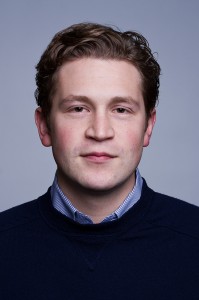
Photo courtesy of Ross Chanin
Solar power has nothing on efficiency, according to Ross Chanin, founder and CEO of American Efficient, a web technology company that influences efficient product choices. Rather than focusing on alternative energy, Chanin’s company finds ways to generate “negawatts,” or negative units of power.
Reducing consumption via efficiency is more cost-effective than using alternative energy sources, he says. American Efficient translates sustainability into a profitable business model where efficiency is a form of supply and promotes savings in the energy sector.
Chanin, 29, holds a law degree from Stanford and was a speechwriter for John Kerry on the 2004 presidential campaign. His last project was an online privacy and reputation management company (Reputation.com), and he is currently an associate with the Truman National Security Project.
Here, Chanin discusses how efficiency is a commodity and saving the environment saves money.
What do you say when people ask you, “What do you do?”
I’m an entrepreneur. I’m inventing a new space within the energy sector, or more specifically, the energy efficiency sector. My company, American Efficient, provides a platform approach to our partners that tips consumer and commercial decisions to efficient, rather than non-efficient, products.
The savings potential is 10 times when compared to what the efficiency space offers today, and it is easily measured. These two factors allow American Efficient to function as a synthetic energy provider, which is to say that we generate energy via units of efficiency, or negawatts, at a cheaper rate than coal or natural gas, and we provide that energy to our partners.
What new idea or innovation is having the most significant impact on sustainability?
I think there are two: First is the recognition that, like it or not, sustainability decisions aren’t special or distinct from other decisions people make. The sooner the players in this market acknowledge this, the better the solutions will become. Sorry to be the bearer of bad news, but just because it’s green doesn’t mean it’s special in the mind of the median consumer. Second is treatment of energy efficiency as a true commodity in energy markets. This is huge, and it’s the future.
What’s something that most people just don’t understand about your area of expertise?
The cost per unit of energy via efficiency: 2.1 cents. The cost per unit of energy via solar: 21 cents. Res ipsa loquitur. (The thing speaks for itself.)
What’s an emerging trend that you think will shake up the sustainability world?
The use of big data not traditionally considered applicable to sustainability — big data that will enable companies like American Efficient to do things energy providers and sustainability advocates never thought possible or have not yet even considered.
What’s a sustainability trend that you wish would go away?
I wouldn’t say that I want the trend to go away, but I do think the sustainability/energy sectors and corresponding venture investment patterns need to be a bit more realistic about the impact that demand-side management (DSM) and behavioral energy use products can really have on medium-sized commercial to residential consumption. To clarify, I’m referring to efficiency products that provide price signals or messaging to energy users in the expectation that either or both will reduce consumption over a sustained period of time.
The fact is that the median American spends no more than six minutes a year thinking about her energy bill — that’s basically nothing. And so, you have to ask yourself, why then are hundreds of millions of dollars being allocated to address a concern that no one actually cares about? It doesn’t make a lot of sense. There’s definitely some groupthink that needs to be recalibrated.
What’s an idea you became fascinated with but that ended up taking you off track?
Probably the life and times of the garden gnome.
Sure, I’m fascinated by new things every day, but you can’t really allow ephemeral stuff to take you or your team off track. Bottom line: Daydreaming is not a luxury you have as an entrepreneur.
Who are three people or organizations that you would put in a sustainability Hall of Fame?
- All Future Premiers of China. It’s aspirational. Without China on board, we’ve got big problems.
- Amory Lovins. He’s the father of the negawatt — enough said.
- Dian Grueneich (California Public Utilities Commission). Dian changed the way public utility commissions think about sustainability. For the casual observer it may not seem so, but in many respects, these commissions are the drivers of green. Regulatory design is sustainability design, and going forward it’s pretty fundamental to a sustainable future.
What other field or occupation did you consider going into?
More directly in policy and politics. I still may down the road. The most important thing, for me, is leaving things better than we found them. Right now American Efficient is a growth technology company. At a point in the future, it may be policy or politics. We’ll see.
What website or app most helps you do your job on a daily basis?
Google products, hands down.
What song has been stuck in your head lately?
Definitely Bruce Springsteen’s, “I’m on Fire.” It’s off of Born in the USA from 1984. I’m from New Jersey. My parents listened to the album on repeat when I was in diapers. Now I was lucky enough to get the girl — the kind of girl Bruce wrote this song about.
